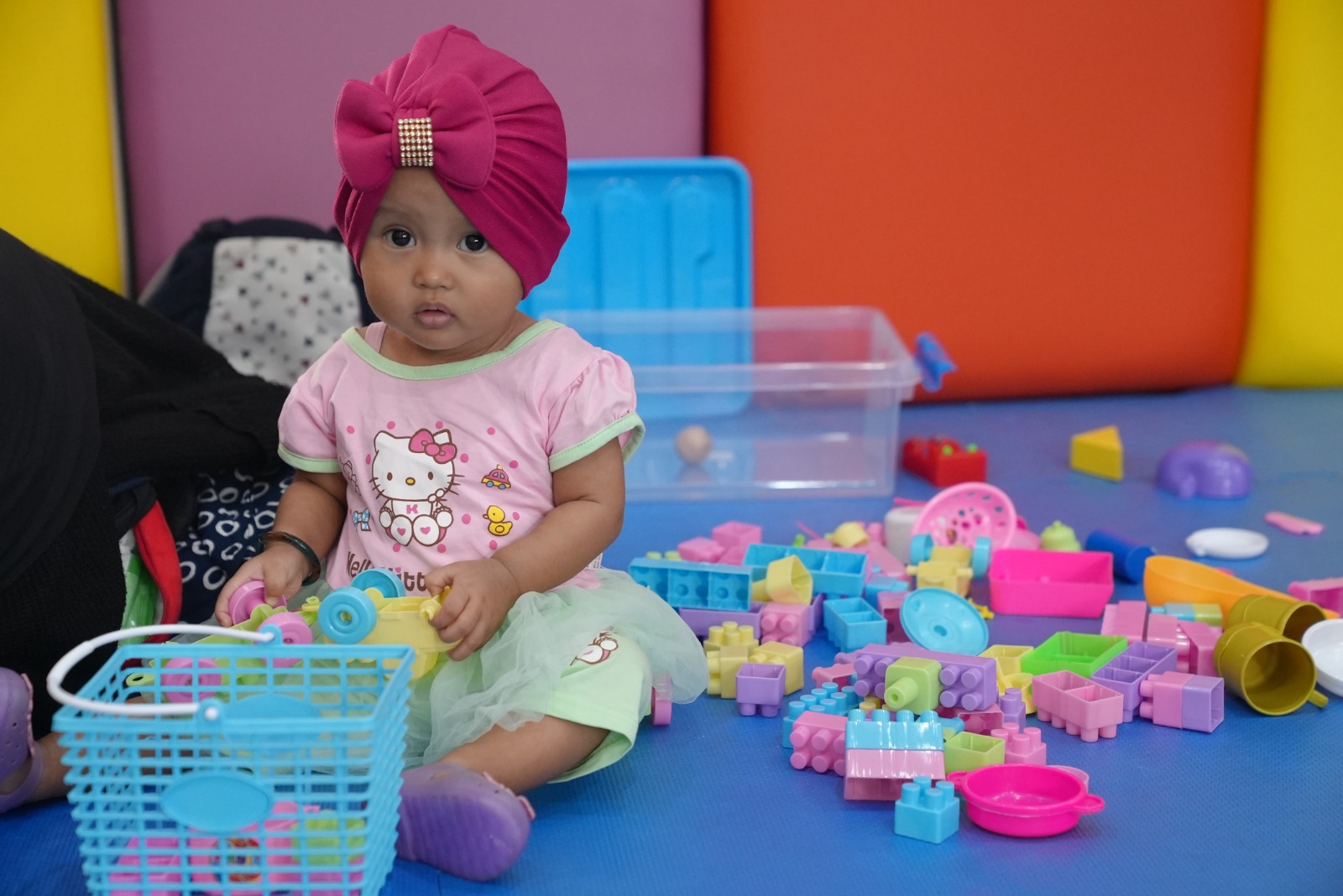Ensuring the Best Start: Tanoto Foundation at UNICEF’s High-Level ECD Roundtable

Early childhood development (ECD) lays a critical foundation for lifelong health, well-being, and productivity. Scientific research highlights that the first years of life – particularly the first 1,000 days (from conception to two years) and the next 1,000 days (from two to five years) – are essential for brain development, influenced by nutrition, health, and nurturing care.
To support global efforts in ensuring children receive the necessary care during these formative years, Tanoto Foundation recently participated as a panellist at the UNICEF Global High-Level Roundtable on the Continuity of the First and Second 1,000 Days in Early Childhood.
At this event, Inge Kusuma, Country Head of Tanoto Foundation Indonesia, joined global experts from India, Laos and Malaysia to discuss best practices and solutions for strengthening early childhood development initiatives globally.
Tanoto Foundation has long been dedicated to improving early childhood development through multi-sectoral, evidence-based approaches in Indonesia and China. Through SIGAP (Strengthening Indonesia’s Early Generation by Accelerating Potential) program in Indonesia, Tanoto Foundation empowers parents, caregivers, and educators with knowledge and resources to support young children’s cognitive and socio-emotional development. Meanwhile, HOPE (Harnessing Opportunity through Parenting and Education) program in China focuses on early childhood care and education in rural areas, ensuring children receive a strong start in life.
Inge Kusuma emphasized the importance of the First 1,000 Days of life in shaping a child’s future, stating, “ECED is one of Tanoto Foundation’s flagship programs, with two main initiatives—stunting intervention and early childhood education—that are making a significant impact.”
“For stunting, we collaborate with national and sub-national governments, working closely with local stakeholders. This initiative involves multiple stakeholders and has contributed to reducing stunting rates in Indonesia. We also establish early learning centers to support children and equip parents with the necessary knowledge and skills,” Inge added.
The SIGAP and HOPE programs have benefited over 80,000 children, providing vital early childhood development and health support.
Key discussion points from the Roundtable:
- Advancing Evidence-Based Advocacy: Strengthening awareness of the transformative power of sustained investments in early childhood, ensuring that policies and programs align with robust scientific evidence.
- Showcasing Success and Innovation: Highlighting best practices and successful interventions from different regions, identifying existing challenges, and developing a strategic roadmap to renew and strengthen commitments toward giving every child the best start in life.
- Strengthening Partnerships for ECD Investment: Encouraging collaboration among governments, civil society, and private sector stakeholders to drive collective action and scale up effective interventions.
A Global Call for Sustained Investment in Early Childhood Development
Held on March 11, 2025, the roundtable served as a platform for key stakeholders to discuss the latest findings from The Lancet’s 2024 Series on Early Childhood Development. This groundbreaking research builds on previous studies from 2007, 2011, and 2016, underscoring the need for continuous, integrated interventions throughout both the first and second 1,000 days of a child’s life.
Pia Rabello Britto, UNICEF’s Global Director of Education and Adolescent Development, remarked, “This research not only proves that the first 1,000 days are crucial for the individual child but also for society and the nation.”
The roundtable resulted in three key outcomes to accelerate global progress in early childhood development:
- A Clear Action Map for Policy and Program Acceleration: A structured framework to strengthen policy implementation and scale up ECD programs, ensuring the continuity of nurturing care beyond infancy.
- Strengthened Workforce Development for Early Childhood: Establishing a dedicated working group to support governments in enhancing professional capacity in the ECD sector.
- Enhanced Advocacy and Investment for ECD: Mobilizing a coalition of global partners to drive advocacy efforts and increase financial commitments for sustainable early childhood programs.
Investing in a child’s early years is not just a strategic decision—it is a moral imperative. When we nurture the youngest members of our society, we pave the way for a brighter, more equitable future for all.

Leave a Reply